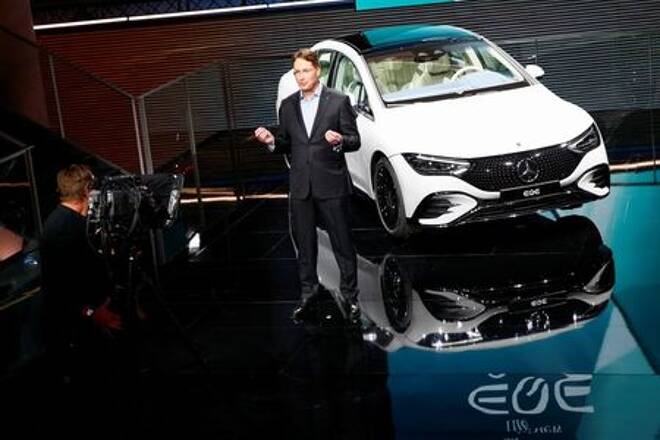Advertisement
Advertisement
Daimler CEO Says Carmakers Could Face Chip Shortage Into 2023
By:
MUNICH (Reuters) - Soaring demand for semiconductor chips means the auto industry could struggle to source enough of them throughout next year and into 2023, though the shortage should be less severe by then, Daimler AG's CEO said on Sunday.
Carmakers, forced by the COVID-19 pandemic to shut down plants last year, face stiff competition from the sprawling consumer electronics industry for chip deliveries, hit by a series of supply chain disruptions during the pandemic.
Cars have become increasingly dependent on chips – for everything from computer management of engines for better fuel economy to driver-assistance features such as emergency braking.
“Several chip suppliers have been referring to structural problems with demand,” Ola Källenius told reporters during a roundtable event ahead of the Munich IAA car show. “This could influence 2022 and (the situation) may be more relaxed in 2023.”
The IAA show is the first major motor industry event worldwide since the COVID-19 pandemic.
Daimler said last week it expected significantly lower third-quarter sales at its Mercedes unit due to a global semiconductor shortage, becoming the latest in a string of automakers to take a hit to revenues. Automakers from U.S. group General Motors to India’s Mahindra and Japan’s Toyota have slashed output and sales’ forecasts due to scarce chip supplies, made worse by a COVID-19 resurgence in key Asian semiconductor production hubs.
Källenius said on Sunday that despite the ongoing chip shortage, the German carmaker hopes its own supply of semiconductors will improve in the fourth quarter.
As part of its plans to electrify its model range, Mercedes-Benz will show off several fully electric vehicles at the show in Munich. These will include global premiers for the EQE, the first fully electric for the premium carmaker’s high-performance AMG brand and a concept car for its luxury Maybach brand. The company will also introduce a fully electric SUV, the EQB, to the European market.
In July Daimler said it will spend more than 40 billion euros ($47.5 billion) by 2030 to take on Tesla Inc in an all-electric market, but warned the shift in technology would lead to job cuts.
Outlining its strategy for an electric future, the German carmaker said it will build eight battery plants as it ramps up electric vehicle (EV) production and from 2025 all new vehicle platforms will only make EVs.
Källenius said the company’s plan to spin off its trucking unit Daimler Trucks by the end of 2021 remains on track. ($1 = 0.8416 euros)
For a look at all of today’s economic events, check out our economic calendar.
(Reporting by Nick Carey; Editing by Susan Fenton)
About the Author
Reuterscontributor
Reuters, the news and media division of Thomson Reuters, is the world’s largest international multimedia news provider reaching more than one billion people every day. Reuters provides trusted business, financial, national, and international news to professionals via Thomson Reuters desktops, the world's media organizations, and directly to consumers at Reuters.com and via Reuters TV. Learn more about Thomson Reuters products:
Latest news and analysis
Advertisement
